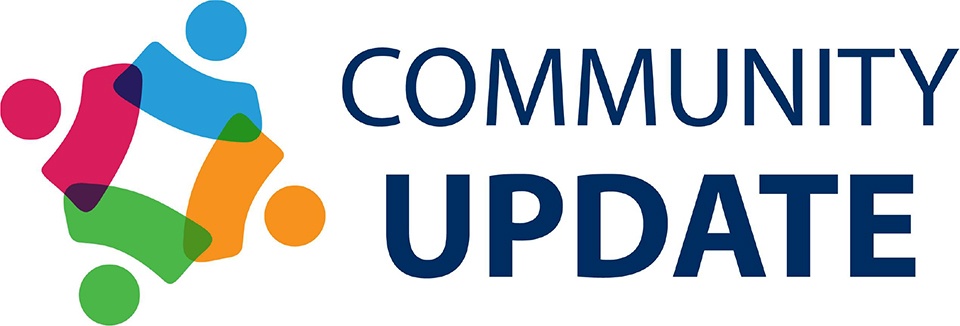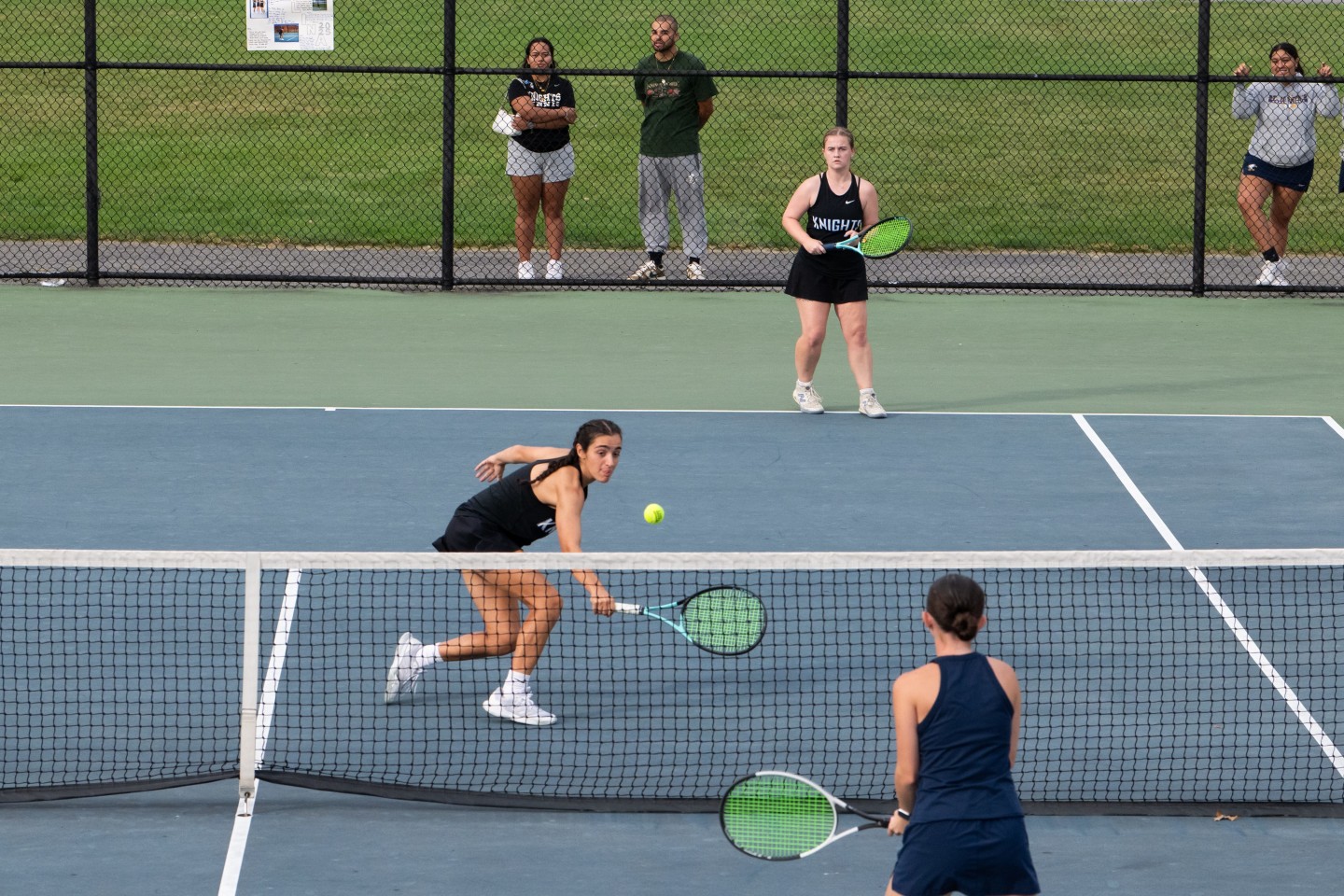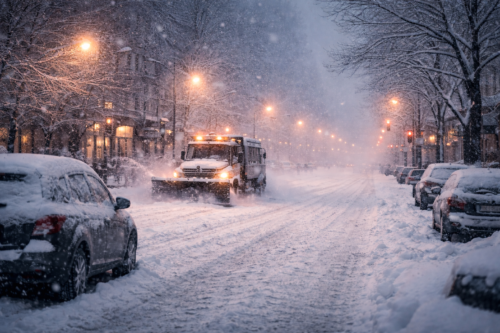Potential ‘Game-Changer’: Hopes High for Johnson & Johnson COVID Vaccine If Authorized

This story is being republished under a special NJ News Commons content-sharing agreement related to COVID-19 coverage. Link to story: northjersey.com/story/news/coronavirus/2021/01/21/johnson-johnson-covid-vaccine-results-soon-one-dose/4202974001/
A COVID vaccine being developed by New Jersey-based Johnson & Johnson could dramatically speed up the fight against the pandemic because, unlike the two vaccines already in use, this one would require only one dose and would not need to be stored at super-cold temperatures.
Results from clinical trials of the new vaccine—developed and produced by Johnson & Johnson’s Janssen division—are expected by the end of this month.
The vaccine would be the third authorized by the federal Food and Drug Administration.
“If it comes through, that’s a game-changer,” Gov. Phil Murphy said Tuesday. Data about the vaccine’s efficacy hasn’t been published yet, and it’s not known when doses would be available to the public or how many would be offered in New Jersey, he acknowledged.
But the potential new vaccine “adds to our sense of optimism,” Murphy said.
The Johnson & Johnson vaccine is much easier to store than vaccines made by Pfizer-BioNTech and Moderna, because it requires only normal refrigeration, rather than sub-Antarctic temperatures. That makes it more useful in rural areas and poorer nations worldwide.
More importantly, it appears to work after only one dose—not requiring two. That doubles the number of people—compared with the other two vaccines—who can be protected from the disease, which has now killed more than 400,000 Americans.
“It will have a profound effect on public health” if proven to be as efficacious as the other vaccines, said Dr. Jeffrey Carson, provost of Rutgers Biomedical and Health Sciences in New Brunswick and the principal investigator for the Johnson & Johnson study site in New Jersey.
“This would allow you to get closer to herd immunity quicker,” he said, referring to the point at which enough of the population is immune to prevent the spread of the virus. The level for herd immunity for COVID-19 has not been determined, but health officials aim to inoculate at least 70 percent of the population in New Jersey.
And given current pent-up demand, “the more companies that are producing vaccine, the quicker we’ll produce supply to meet the demand,” Carson said.
Currently authorized vaccines from Moderna and Pfizer are 94 percent effective—a high bar to match. If the Johnson & Johnson vaccine is less effective, but still receives authorization, it could take longer to get to herd immunity and might lead some people to wait for the more effective available versions.
“We’ll see what the data shows,” Carson said, adding that he hopes the vaccine is good enough to be considered equivalent to the others.
The study’s large size—45,000 patients—may enable researchers to conclude whether different groups, such as the elderly or ethnic groups, react to the vaccine differently. And this vaccine may have fewer or different side effects than the other vaccines.
While that data is being finalized, a separate study is now recruiting volunteers in New Jersey. It will test whether two doses of the Johnson & Johnson vaccine are even more effective than a single dose and produce longer-lasting immunity.
Jersey Shore University Medical Center is recruiting 300 adults age 18 or older who will receive two doses of a vaccine or placebo, 57 days apart. That study seeks 30,000 volunteers worldwide. Ethnically diverse populations and those over 60 years old are especially welcome.
But recruitment is slow, now that two other vaccines have been authorized, said Dr. Ed Liu, Jersey Shore’s chief of infectious diseases and the study site’s principal investigator. “If this was six months ago, it would be a different story,” he said.
Nevertheless, he is hopeful. “Having vaccine options could help us get past this pandemic,” he said.
Johnson & Johnson has promised 100 million doses of its vaccine to the U.S. government by the end of the year, although leaders of Operation Warp Speed, the federal program to develop and manufacture a COVID vaccine, said this month that unspecified production issues likely would slow the arrival of the initial doses to “single-digit millions.”
Each dose would protect one person, with no need to call the person back for a booster shot in three or four weeks. And the shot would be convenient—a person could get it while at the doctor’s office or ER for another reason. Carefully scheduled appointments timed to the thawing of multi-dose vials that expire within hours, which is the case for the Pfizer and Moderna vaccines, would be unnecessary, because the vaccine is simply stored in a refrigerator.
The Johnson & Johnson doses will become available, however, only after the company applies for and receives Emergency Use Authorization from the federal Food and Drug Administration. And that will happen only after the results are analyzed.
That could come soon—the data could be “locked” and submitted to an independent review board as soon as Thursday, Carson said.
Rutgers recruits 840 study volunteers: Volunteers at Rutgers University—the second-largest Johnson & Johnson study site in the world, with 840 participants—are helping researchers learn whether the vaccine works.
This was the fastest study to enroll participants in Johnson & Johnson’s history, and Rutgers—by tapping into its alumni network and a cohort of thousands of participants in the university’s previous research studies about COVID—played a big part in it.
“The whole university rallied behind the project,” Carson said. With the second wave of the pandemic also demanding staff attention, “it was a huge challenge,” he said, but the urgent need motivated the researchers.
“This is among the most important studies we will ever participate in,” he said. “We’re trying to improve public health. What could be more important?”
The federal government set up six trailers in Piscataway for study vaccinations, in addition to two sites in New Brunswick. For four months, the research team worked long hours to make follow-up calls with participants and clean up data.
Johnson & Johnson targeted virus hotspots as locales for the research, hoping that would speed the accumulation of COVID cases and completion of the study. New Jersey was included because of Department of Health models that showed the extent of the second surge, Carson said. Other sites were in Brazil, Argentina, Chile, Colombia, Mexico, Peru, South Africa and 31 other states.
Half the volunteers were given the experimental vaccine and half a placebo—an injection of salt water.
As soon as 154 of the 45,000 study participants worldwide have been diagnosed with COVID, according to the study protocol, the research team will compare how many of them received the vaccine and how many received the placebo.
Several of those 154 cases occurred among the Rutgers participants, Carson said. And because the pandemic has been surging around the world, it’s likely more than 154 COVID cases occurred, which will give the results more weight.
The number of participants from various minority groups fell short of what researchers had hoped, however. “I wish we could have done better,” Carson said. “We tried.”
One serious medical event was reported in a participant in Brazil in October, leading to a 12-day pause in the study. After review, an independent safety and monitoring board recommended resumption. Johnson & Johnson said in a statement that the company “found no evidence that the vaccine candidate caused the event,” but gave no details about what occurred.
Early results promising: Johnson & Johnson took a big gamble when it decided to test the success of its vaccine after a single dose. But the benefit of providing vaccines to twice as many people—including those in rural and less developed regions where super-cold freezers are not available—was huge.
Results from the preliminary Phase 1 and 2 study of the Johnson & Johnson vaccine were published last week. They showed that the vaccine was safe and that 90 percent of its recipients produced antibodies to COVID within 29 days, paving the way for expansion to Phase 3.
The vaccine is different from the Moderna and Pfizer vaccines. It uses a modified adenovirus, which typically causes the common cold, to carry the vaccine material into human cells. The adenovirus has been modified so as not to replicate or cause illness.
Johnson & Johnson used that technology in a vaccine for Ebola that was approved in July for use in European countries. It’s also been used in vaccines that are being studied for HIV and respiratory syncytial virus, a common childhood illness.
The U.S. government has contracted to pay $1 billion for 100 million doses of the vaccine, if it is approved. Through Operation Warp Speed, Johnson & Johnson received an additional $456 million to develop the vaccine.







